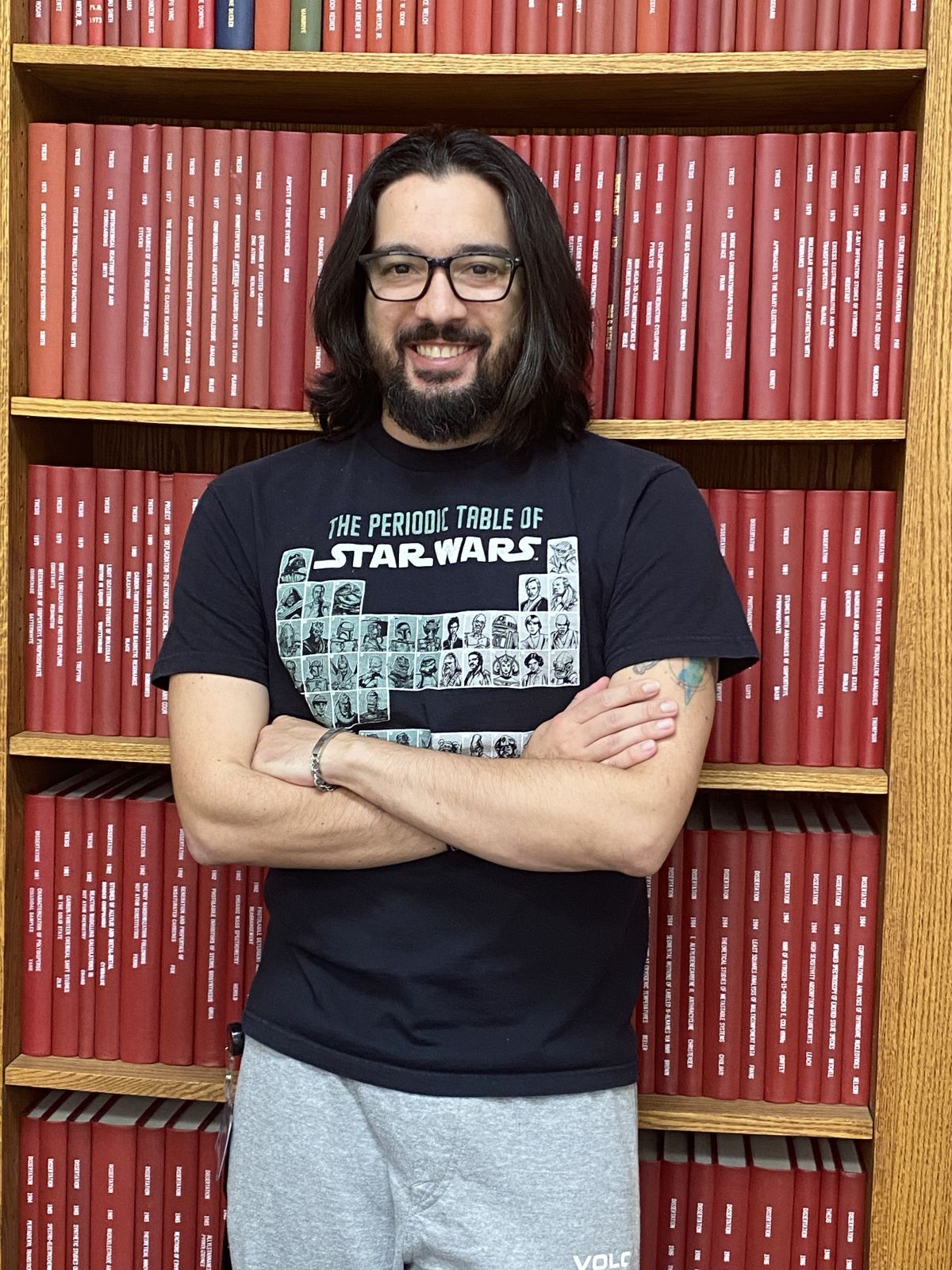Gabriel C.A. da Hora - PostDoctoral Fellow in Swanson Group
 My name is Gabriel, and I'm from Brazil (yes, I play soccer – aka real football 😉).
I did my undergrad and master’s in chemistry there and worked primarily with quantum
chemistry. And then, I moved a little bit inside the Computational Chemistry field
to Molecular Dynamics, focusing on studying biomolecules. Part of my Ph.D. was done
at the University of California Davis, which I later returned as a visiting postdoc
before moving here to Utah.
My name is Gabriel, and I'm from Brazil (yes, I play soccer – aka real football 😉).
I did my undergrad and master’s in chemistry there and worked primarily with quantum
chemistry. And then, I moved a little bit inside the Computational Chemistry field
to Molecular Dynamics, focusing on studying biomolecules. Part of my Ph.D. was done
at the University of California Davis, which I later returned as a visiting postdoc
before moving here to Utah.
What motivates and inspires you?
My scientific curiosity and the possibility of exploring and discovering the unknown motivate me. Since I was young, I have always liked to play with problem-solving, looking for answers, and trying to understand nature. I have always been passionate about scientific programs, like Beakman’s World, Sci-Fi Movies, like Back to The Future, and those sorts of things. And I seek inspiration in everyday things, in people, in contributing to society, to help to improve human life, and even in my family. My parents were both very scientifically driven and always listened to and respected science. So, this is where I think I found my way.
What interests you most about your research?
As computational chemistry, some may think we would be a little apart from influencing something on the very close applications part. We are contributing to a better world in general, but also fighting against diseases, understanding how toxins permeate through cells, and ways to avoid that. Also, working against climate change: every single contribution that we can add to it, and to make people more aware of it and how to address and solve this problem. Those are vital things that I care about in my research.
What do you wish you had known when you first came to Utah?
It is too cold. I mean from my tropical perspective. And places close too early in Utah.
Your favorite University of Utah experience
My favorite experience was visiting the History Museum on the upper campus. It was amazing to see the dinosaurs’ fossils and all the other collections over there. It brought me back to when I was a kid watching Jurassic Park and imagining those giant reptiles walking on the Earth.
What research topics being explored interest you the most
Outside my field, stem cells. It’s been interesting how they are used to cure diseases or make improvements in others that are very difficult to deal with. Related to my field; I think artificial intelligence. We're seeing many advances with those AI-language models and machine learning—a scorching topic.
What do you do for fun outside the lab? How do you handle stress?
First, I would say my Chihuahua. She is the one that keeps my mind calm and happy. And I like to do small things like jogging, running, and biking. I want to play video games, watch series or movies, and read books. I combine those things to handle stress and meditate a little. And most importantly: therapy. Mental health is crucial.
What advice do you have for prospective postdocs?
I recommend watching UPDA events calendar and other campus activities. Postdocs can be a little lonely, and we have those places and things that can bring us together.
What is the most significant difference between life as a grad student and a postdoc researcher?
I believe the classes/tests are a first—the pressure to score on tests when you're trying your degree to obtain your degree. We don't have that pressure anymore, but on the hand, we have extra pressure to publish papers. Nevertheless, now I have more time to focus on the research. That gives a different perspective on what is essential and the next career goal.
What do you plan to do after your postdoc?
I like to keep my mind open for the future. I always thought of being a professor, pursuing the academic path. In Brazil, the career is very focused on Academia. But here in the US, I have seen that the industry hires many postdocs, which brought me a different perspective. So, I wouldn't exclude that either. The future belongs to those who dare.
April 2023
